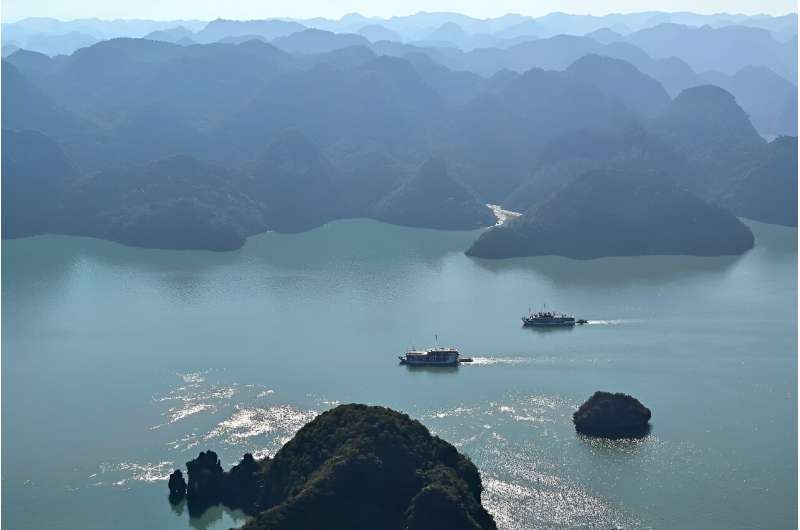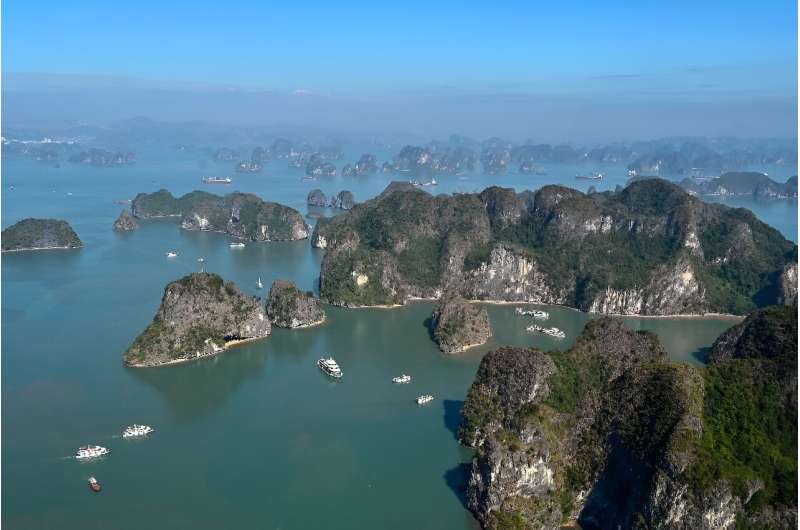This article has been reviewed according to Science X's editorial process and policies. Editors have highlighted the following attributes while ensuring the content's credibility:
fact-checked
reputable news agency
proofread
Vietnam's Ha Long Bay losing its hue

Vietnam's Ha Long Bay is losing its famous turquoise hue as pollution and over-development threaten its wildlife and picture-perfect image.
The UNESCO site is one of Vietnam's most popular tourist destinations, with more than seven million people visiting its blue-green waters and rainforest-topped limestone islands last year.
But the bay's popularity, and the subsequent rapid growth of Ha Long City—now home to a cable car, amusement park, luxury hotels and thousands of new homes—have severely damaged its ecosystem.
The surrounding town is already heavily developed, with docks and luxury apartments clogging the shoreline.
Last month pictures were published in state media of an enormous construction site running through the waters of a neighboring bay, sparking outrage among conservationists.
Conservationists estimate there were originally around 234 types of coral in the bay—now the number is around half. There is also a huge problem with both human and plastic waste.
On Thursday tourists queued up for seats in a boat-plane to wing their way over the bay and see its more than 1,900 islands from the air.
"I was actually expecting for more blue waters in Vietnam," said Anete Cimbule from Latvia.

"We would like to see cleaner waters."
After his third flight over the bay, captain Nguyen Ba Hai was more upbeat about the future.
"Over the past decade... the discharge of plastic trash onto the sea has greatly improved, that's very encouraging," he said.
But, he added, he would "love to see the water as blue as it used to be".
© 2023 AFP





















